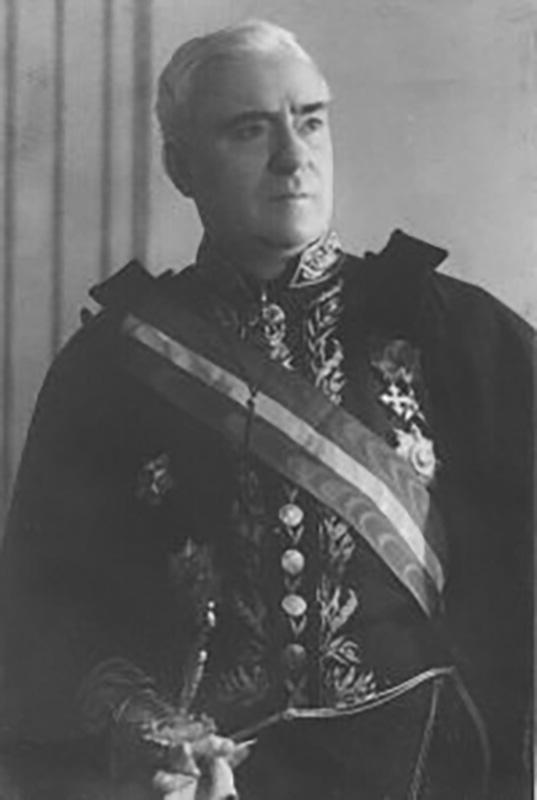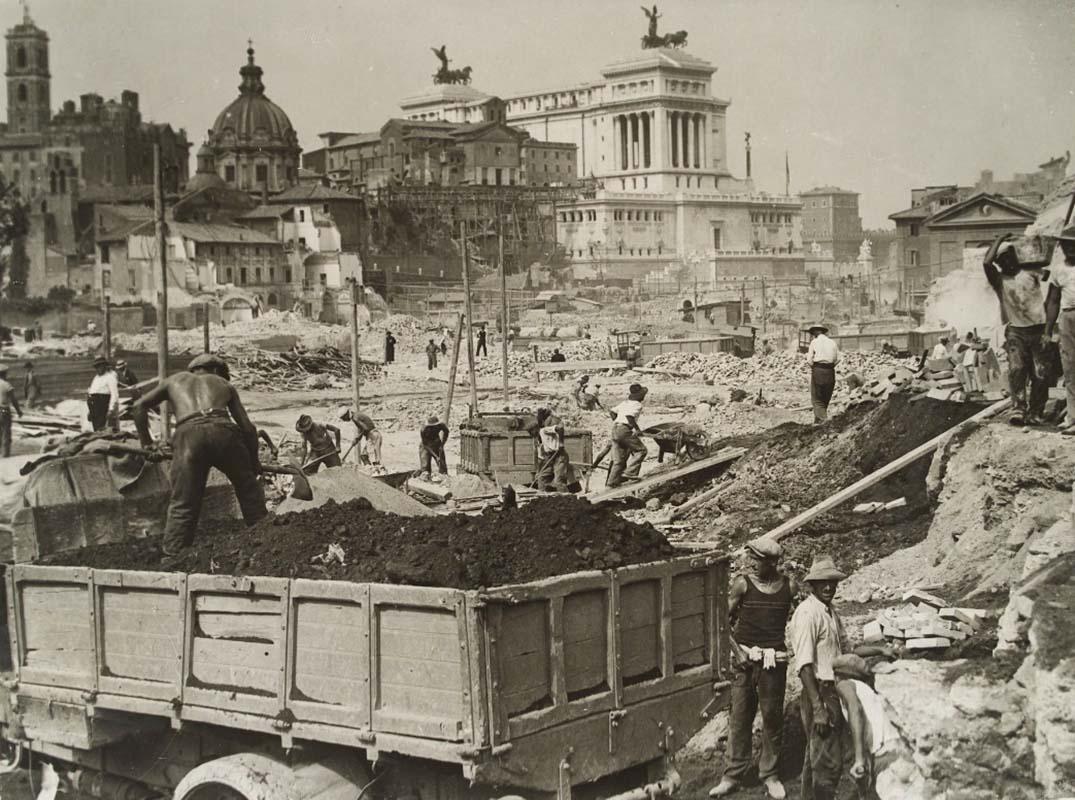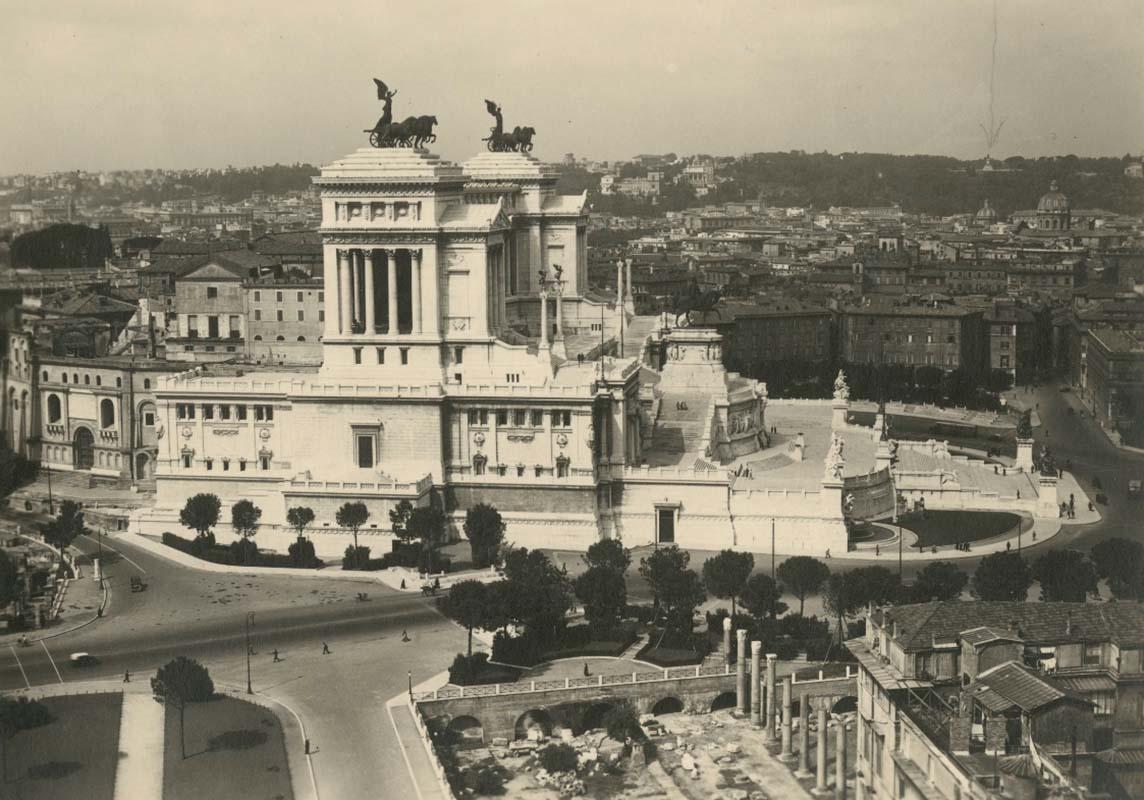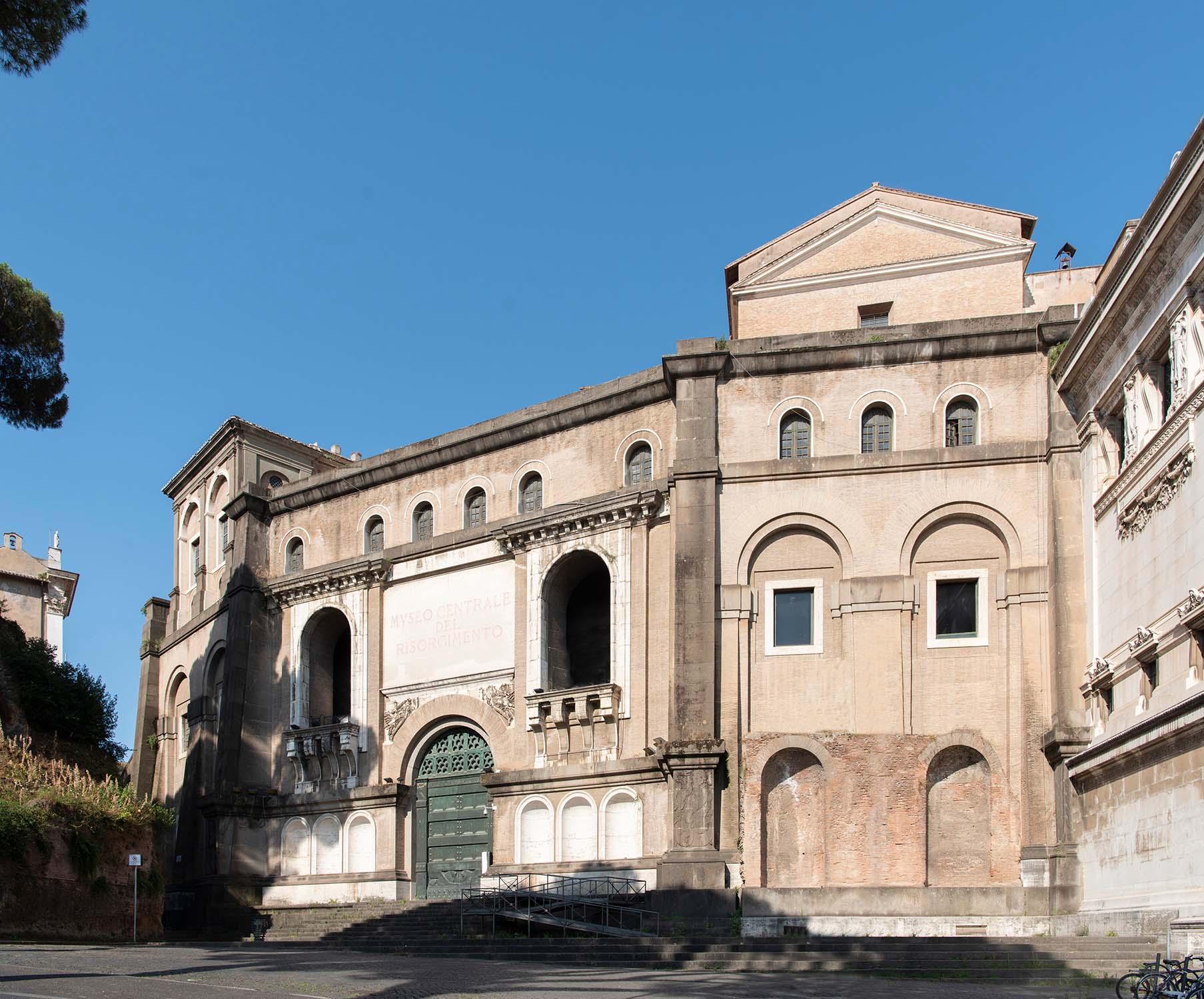Armando Brasini’s project
A new architect takes over the work and solves the instability problems
Appointed artistic director of the Vittoriano in 1924, Armando Brasini (1879-1965), immediately turned his attention to the problems that afflicted the eastern part: in the meantime, these problems had worsened due to the need to protect an imposing Roman age wall that emerged during the excavation work at the Ara Coeli monastery.
Brasini imposed a series of changes to the original project, developed only a few months earlier by Manfredi-Piacentini: the architect thus transformed the building designed to connect with the Vignola portico into the main entrance of the Risorgimento Museum and gave it its own monumental façade made of peperino and travertine. Moreover, thanks to a series of objectively ingenious solutions, Brasini solved the problem of ‘slippage’ that had plagued the eastern side of the Vittoriano.














